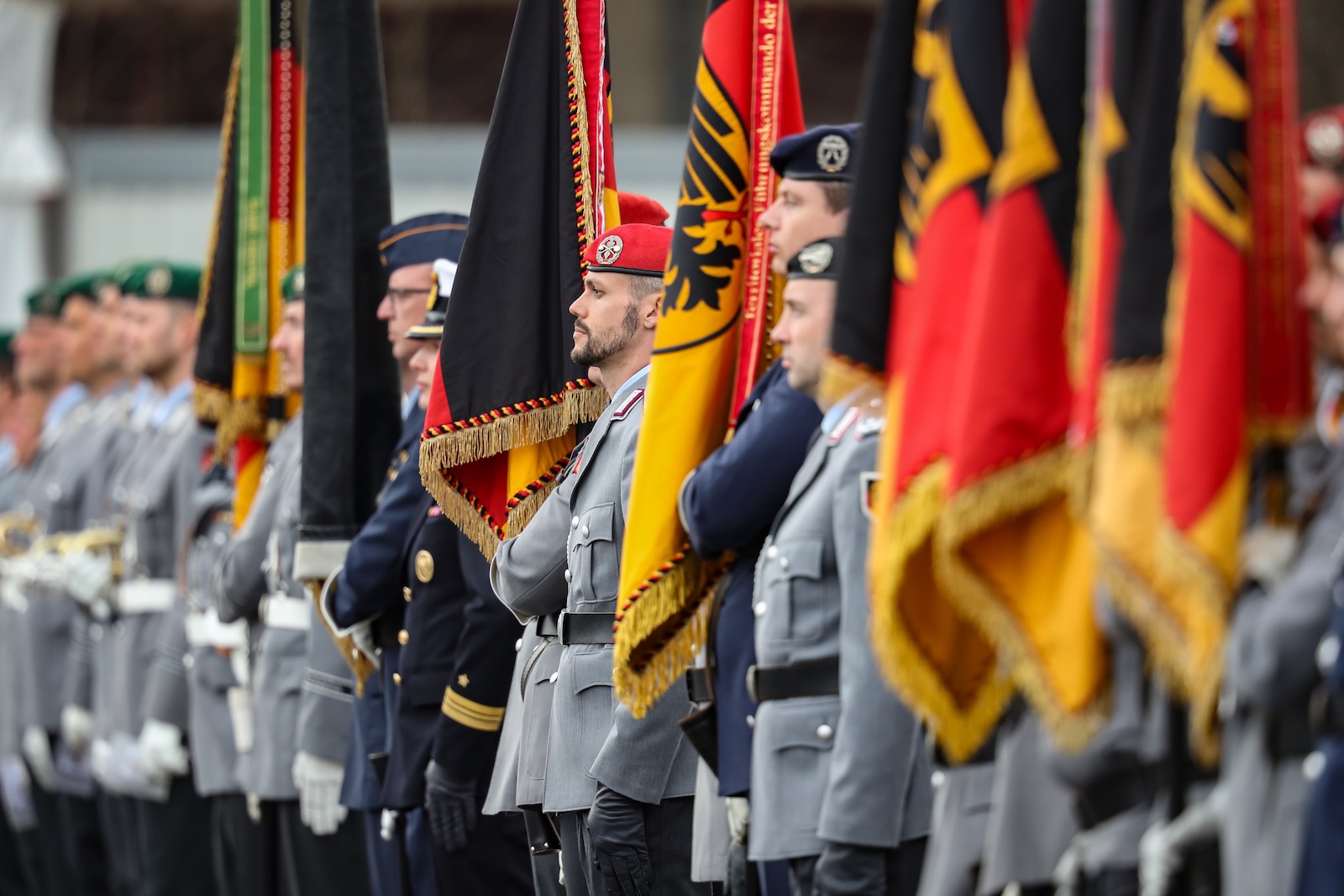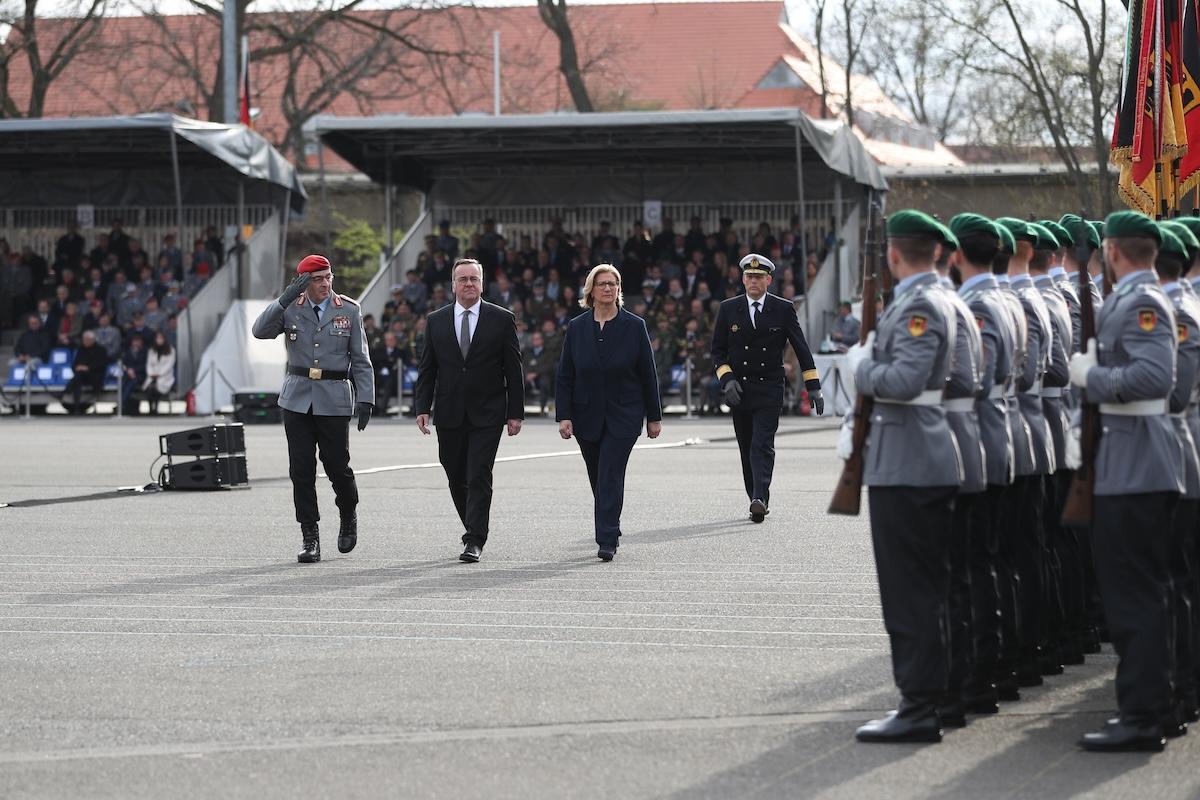Get the weekly SPARTANAT newsletter.
Your bonus: the free E-Book from SPARTANAT.

With a solemn ceremony at the Julius-Leber-Kaserne in Berlin, the Operational Command of the Bundeswehr was formally activated yesterday. It was established as part of the Bundeswehr reform after the Osnabrück decree, bundling the leadership responsibilities in the entire spectrum of tasks of the Bundeswehr into one command.
The commissioning began with the solemn entry of the honor formation, consisting of soldiers from the Bundeswehr's Staff Band and the Guard Battalion at the Federal Ministry of Defense as well as the flag delegations of the participating agencies - the new unit flag of the Operational Command still concealed - to the sounds of the march 'Preußens Gloria'. Boris Pistorius, Federal Minister of Defense, honored guest Anke Rehlinger, President of the Federal Council and Minister President of Saarland, together with the Inspector General of the Bundeswehr, General Carsten Breuer, then proceeded to pass in review of the assembled soldiers.

In his address to the troops and the invited guests, Pistorius emphasized the need to strengthen national defense and alliances in view of the current European security situation: "We must set the right course for the protection and security of our country." The Osnabrück decree laid the foundation for a Bundeswehr that would meet the challenges of the turning point. The establishment of the Operational Command is therefore more than the merger of two commands. It represents a clear division of roles for unified operational leadership: "We will be more effective. We will be more agile. We lead from a single source, can better prioritize and coordinate," said Pistorius. The Operational Command of the Bundeswehr is now responsible for national and joint operation planning, management, and evaluation in the entire spectrum of tasks of the Bundeswehr.
Two Farewells at the Beginning
First, General Breuer disbanded the two predecessor commands: the Operational Command of the Bundeswehr, which previously led the foreign missions in international conflict and crisis management, and the Territorial Command of the Bundeswehr, which previously was responsible for all Bundeswehr missions in country as well as national territorial defense. The Inspector General relieved Lieutenant General André Bodemann of his duties as commander of the TerrFüKdoBw and Rear Admiral Jörg Klein correspondingly of the duties of the commander of the EinsFüKdoBw. In a ceremonial manner, the unit flags of the disbanded commands were then covered.
General Breuer honored both commands in farewell. About the Operational Command of the Bundeswehr, he said: "Balkans, Afghanistan, Africa, Mediterranean - in Schwielowsee, the threads came together, for all of our 50 foreign missions, from building the field camps to the redeployment, from start to finish - even to the sharp end." He emphasized that the sharp end of the soldier's profession had not been as clear in any other command as in the Operational Command - still visible today in the forest of remembrance, where the fallen and dead of the missions are honored.
General Breuer feels personally connected to the Territorial Command of the Bundeswehr as the first commander of the command. When it emerged from the Territorial Tasks Command and established within only six months in September 2022, it had to cope with a wide range of tasks: Host Nation Support, Ukraine support, the development and expansion of homeland security, and Operation Plan Germany. "The Territorial Command has quickly grown up," said Breuer. "This is an important launching pad for the future establishment of the armed forces in a time when not only our territorial tasks are increasing, but also the territorial threats."
New Command, New Unit Flag, New Flag Ribbon
With the unveiling of the new unit flag, General Inspector Breuer then officially commissioned the new command. He formally handed over the command as commander of the Operational Command of the Bundeswehr to Lieutenant General Alexander Sollfrank. At the same time, the 16 regional commands, each represented by a delegation of flags, were placed under the Operational Command. Previously, they had been assigned to the Territorial Command of the Bundeswehr.
The flag ribbon was awarded by President of the Federal Council Rehlinger and Minister of Defense Pistorius. After the flag delegation stepped back into formation, the Staff Band played the German National Anthem. The commissioning appeal ended with the exit of the honor formation and the report to Minister of Defense Pistorius.
SPARTANAT is the online magazine for Military News, Tactical Life, Gear & Reviews.
Send us your news: [email protected]
Ad
similar
Get the weekly SPARTANAT newsletter.
Your bonus: the free E-Book from SPARTANAT.


